Who Are Hollywood's Greatest Character Actors? A Statistical Analysis of Iconic "That Guy" Performers
Celebrating Hollywood's most prolific (yet underappreciated) supporting actors and actresses.
Intro: "Oh, That Guy!"
In 2012, Saturday Night Live aired a sketch centered on a fictional game show called "Dylan McDermott or Dermot Mulroney?" If you are unfamiliar with these actors (despite vaguely recognizing their names), then you grasp the skit's comedic premise. Host Bill Hader quizzes contestants by showing photos of the two actors, challenging them to correctly distinguish Dylan McDermott from Dermot Mulroney, who are both known for playing unattainably handsome supporting characters (and rarely, if ever, the relatable lead).
The players fail miserably at this game—as do most people—and the sketch culminates with a surprise cameo from Dermot Mulroney, who fails to recognize his own face.
If you've read this far and cannot place either performer, here's a photo to jog your memory:
If, upon seeing this graphic, you immediately exclaimed, "Oh, that guy!" then you've captured the essence of today's analysis. And if you didn't, pretend you did.
Veteran character actors like Dermot Mulroney exist in a peculiar middle ground between household-name recognition and total anonymity. These performers, reliably skilled and ever-present in prestige film and television, are seldom the focal point of a story. Consequently, these actors and actresses are only recognizable by sight, and rarely become the face of a film's marketing campaign. Well, not on this day. In this analysis, we foreground the established character actor, highlighting the best of the relatively unknown.
So today, we'll explore Hollywood's most exceptional "that guy!" and "that gal!" performers, identify what these actors have in common, and consider the unique advantages that come from this particular brand of celebrity.
Who Are The Ultimate "That Guy" and "That Gal" Performers?
What makes someone a "that guy" or "that gal" actor, and how should we identify these highly-visible yet semi-anonymous performers? This colloquial distinction is rather squishy, existing in a precise middle ground: the actor is neither too obscure nor too prominent.
The clearest marker of mid-level notoriety can be gleaned from a film's credits, which rank performers by narrative importance. For example, in Titanic, Leonardo DiCaprio and Kate Winslet occupy positions one and two in the movie's credits, while somewhat-recognizable character actors like Bill Paxton, Kathy Bates, and Billy Zane fall within the four-to-ten range.
For this analysis, we'll focus on character actors who appear between spots six and twelve of a film's credit roll. Performers in this range are rarely featured in promotional campaigns or movie posters, yet they're integral to the plot.
When we tally career credits for actors listed in cast positions six through twelve, we get a cohort of performers who generally elude the memory of casual viewers (which makes for great journalism).
Here lies the challenge of writing about highly specific cultural phenomena: an article willfully fixated on unrecognizable actors could make for an underwhelming read (keyword: could). To correct for this, I've assembled a graphic celebrating our "that guy" hall of fame, designed to prompt multiple satisfying moments of "that guy!" recognition.
A few observations from this list:
These are all guys: These figures were calculated across all genders, yet somehow our initial cohort is a bunch of dudes. Good going, Hollywood! We'll return to this point in a little.
Many of these character actors have gained notoriety through the meme-ification of their onscreen personas: Character actor Danny Trejo recently opened a chain of taco restaurants whose single distinguishing feature is a logo of his face. Meanwhile, Stanley Tucci hosts a travel docuseries about Italy and writes best-selling cookbooks about Italian cuisine. Both actors have transformed loose cultural associations into profitable brands; in Stanley Tucci's case, because he played an Italian chef once in a movie from the 1990s. These business ventures pose no threat to Trejo or Tucci's acting careers because they're insulated from the tabloid-driven pressures of true movie stardom. Something like “Tom Cruise's Taco Trattoria" would likely damage the actor's credibility in Mission: Impossible films, whereas Danny Trejo faces no such risk.
Many of these performers frequently collaborate with the same filmmakers: Some directors assemble a trusted ensemble of actors, casting the same performers across their filmographies. Phillip Baker Hall is in several Paul Thomas Anderson movies (Magnolia, Boogie Nights, Hard Eight), Stephen Root frequently works with the Coen Brothers (No Country for Old Men, Oh Brother, Where Art Thou?, The Hudsucker Proxy), and Keith David came to prominence through his collaborations with John Carpenter (The Thing, They Live). These filmmakers recognize the preternatural gifts of Root, David, and Baker Hall, tailoring roles to their unique talents.
Setting my bias aside (which is something a biased person would say), I believe we've assembled a top-notch roster of character actors—if you discount the complete and total lack of gender diversity. Unfortunately, the dude-centric skew of this list is a feature, not a bug. Across all movies in our dataset, ~70% of supporting roles went to male performers, which does not match the general population (last time I checked).
To make up for this imbalance, I compiled a complementary cohort of "that gal" performers, accompanied by a reference graphic for ease of identification.
The clear standout from this group is Margo Martindale. The Netflix Animated series Bojack Horseman features a long-running gag centered on "esteemed character actress Margo Martindale," playfully mocking her relative anonymity and versatile acting ability—qualities emphasized by repeatedly invoking her full name alongside her character-acting credentials. Throughout the series, "esteemed character actress Margo Martindale" appears in increasingly absurd scenarios (as a pirate or outlaw bank robber), with Bojack and others frequently praising her adaptability (both onscreen and within the show's universe).
Similar to our supporting actors, several "that gal" performers have been meme-ified for their distinctive niche in popular culture, such as Martindale or Judy Greer (whose repeat portrayals of rom-com best friend characters spawned "the Judy Greer type" caricature).
These performers are parodied for being widely seen and oftentimes forgotten, yet life as a character actor isn't so bad.
For lead performers, visibility can be both a blessing and a curse. Consider Taylor Kitsch, who had the misfortune of starring in Disney's John Carter, a film that lost over $200M. Despite quality work in TV's Friday Night Lights, John Carter's failure stalled Kitch's transition to movies, ultimately pushing him back to supporting work on TV.
A poorly-received movie can tarnish a lead actor's reputation by association, undermining their perceived bankability and pushing them further down the call sheet in future projects. Meanwhile, supporting performers experience little to no change in credit placement following a flop.
Character actors benefit from work in acclaimed films and are rarely hurt by box-office bombs, enjoying remarkable career stability, as long as they find their niche (which is no small feat). Brad Pitt and Emily Blunt constantly risk losing their amorphously understood "star status," while "character actress Margo Martindale" can remain indifferent to cultivating and maintaining celebrity, thereby free to focus solely on performance.
Enjoying the article thus far and want more data-centric pop culture content?
Final Thoughts: The Merits of Anonymity
Every week, Bill Simmons' The Rewatchables podcast bestows several made-up superlatives upon "rewatchable" classics like The Departed, Heat, and Boogie Nights. Among the show's most idiosyncratic honors is The Dion Waiters Award, which celebrates standout work from supporting actors.
Understanding this accolade (and its origins) requires familiarity with notorious 2010s NBA bench player Dion Waiters, who was known for:
Receiving limited playing time
Adopting the playing style and attitude of Michael Jordan circa game six of the NBA Finals, despite being the eighth or ninth most important player on his team (and appearing in mostly meaningless games)
Dominating a contest in short spurts (sometimes for the wrong reasons, often reckless play)
Never apologizing for taking terrible, momentum-killing shots
Becoming a frequent post-game talking point and highlight-reel staple despite minimal playing time
While the Dion Waiters analogy does not map perfectly onto supporting character work (these actors are not renowned for egocentricity), the effect of these performances is comparable: figures like Waiters and "character actress Margo Martindale" captivate audiences in the little time they're allotted.
This past week, I watched three wildly different movies: Sorry, Baby (a heartfelt, low-budget dramedy from A24), Zodiac (not a funny movie), and Crazy, Stupid, Love (a movie that attempts comedy, sometimes successfully). Despite lacking thematic cohesion, these films share one notable connection: character actor John Carroll Lynch earns the Dion Waiters Award in all three movies. And since you may have forgotten his face (over the course of eight paragraphs), here's another picture of Lynch:
Watching "that guy" excel in three dramatically different roles—ranging from a goofy suburban dad to the presumed Zodiac killer—highlights a versatility rarely demanded of A-list actors. If Brad Pitt were cast in any of these parts, his performance would be overshadowed by his larger-than-life celebrity persona (he is unmistakably Brad Pitt). Whether he's driving an F1 car or fighting zombies, viewers remain hyper-aware of Pitt's inherent Brad Pitt-ness and how the filmmakers are leveraging his star power.
Meanwhile, John Carroll Lynch has a paradoxical gift for playing eccentric everymen—his performances resonate precisely because audiences have no preconceived notion of his "John Carroll Lynch-ness." Like Dion Waiters launching eight long-range three-pointers off the bench (metaphorical or otherwise), Lynch's brilliance is rewarding for its unpredictability.
Sometimes, anonymity is an advantage: each performance is a blank canvas and every role is another chance to earn the much-vaunted Dion Waiters Award—and, if you're lucky, another step closer to launching your very own taco chain.
Struggling With a Data Problem? Stat Significant Can Help!
Having trouble extracting insights from your data? Need assistance on a data or research project? Well, you’re in luck because Stat Significant offers data consulting services and can help with:
Insights: Unlock actionable insights from your data with customized analyses that drive strategic growth and help you make informed decisions.
Dashboard-Building: Transform your data into clear, compelling dashboards that deliver real-time insights.
Data Architecture: Make your existing data usable through extraction, cleaning, transformation, and the creation of data pipelines.
Want to chat? Drop me an email at daniel@statsignificant.com, connect with me on LinkedIn, reply to this email, or book a free data consultation at the link below.
Want to chat about data and statistics? Have an interesting data project? Looking to produce data-centric editorial content? Email daniel@statsignificant.com


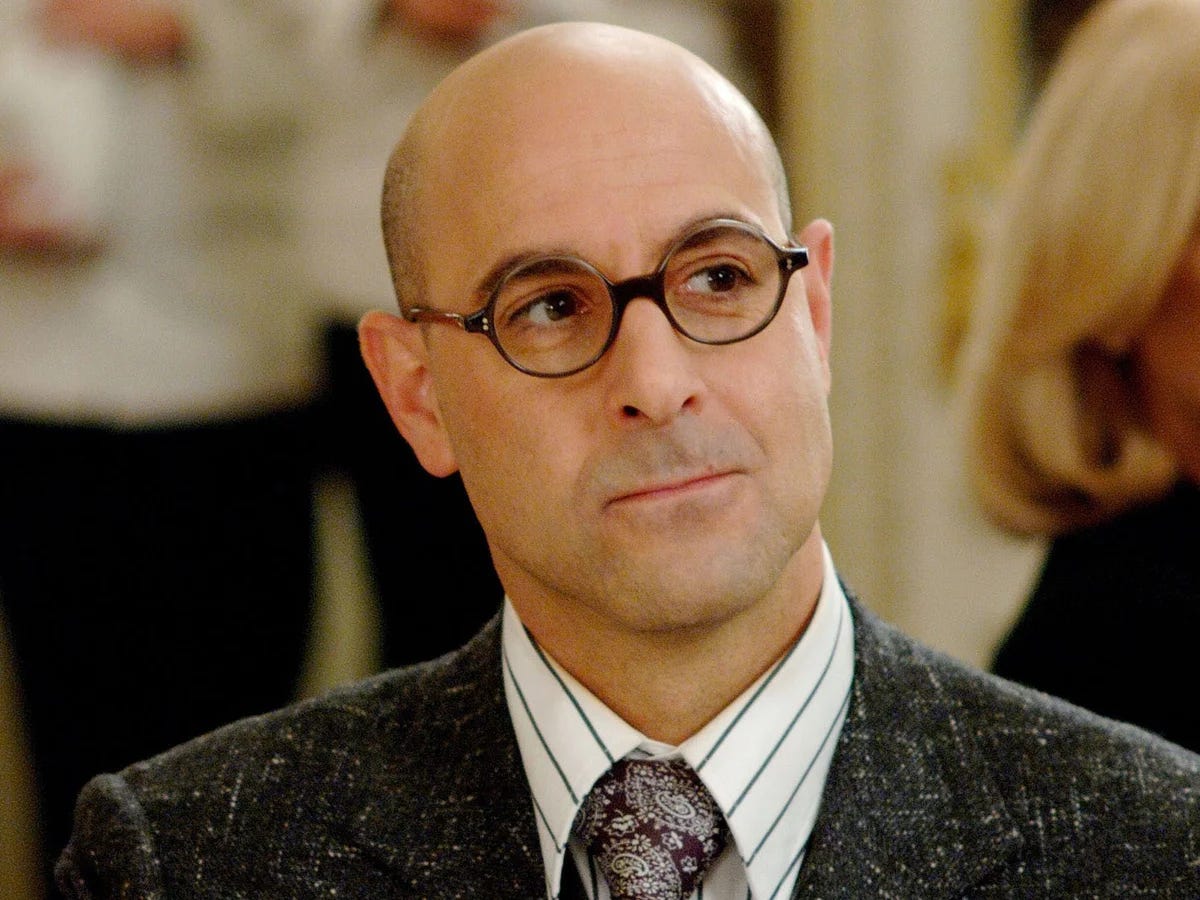
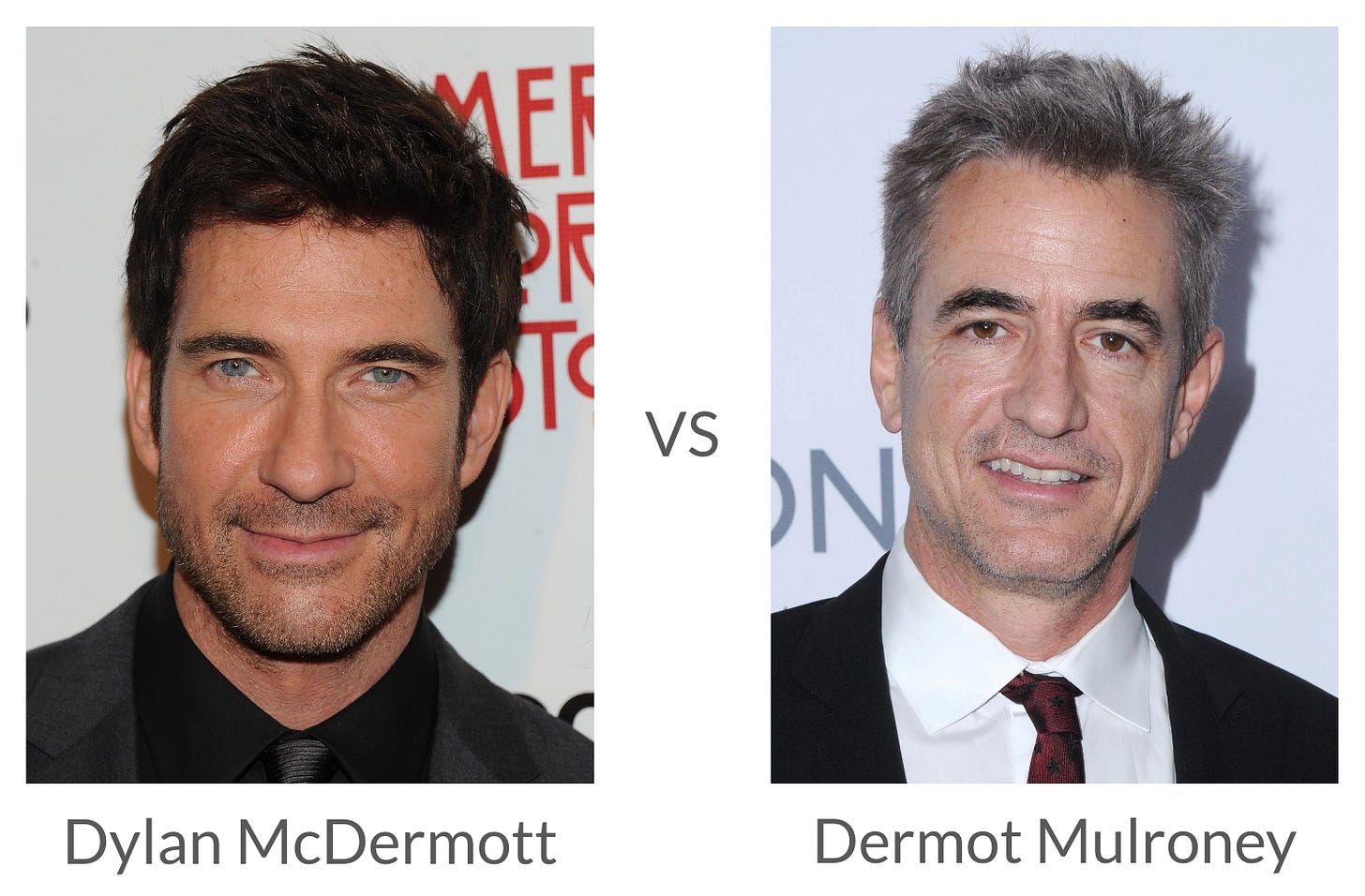
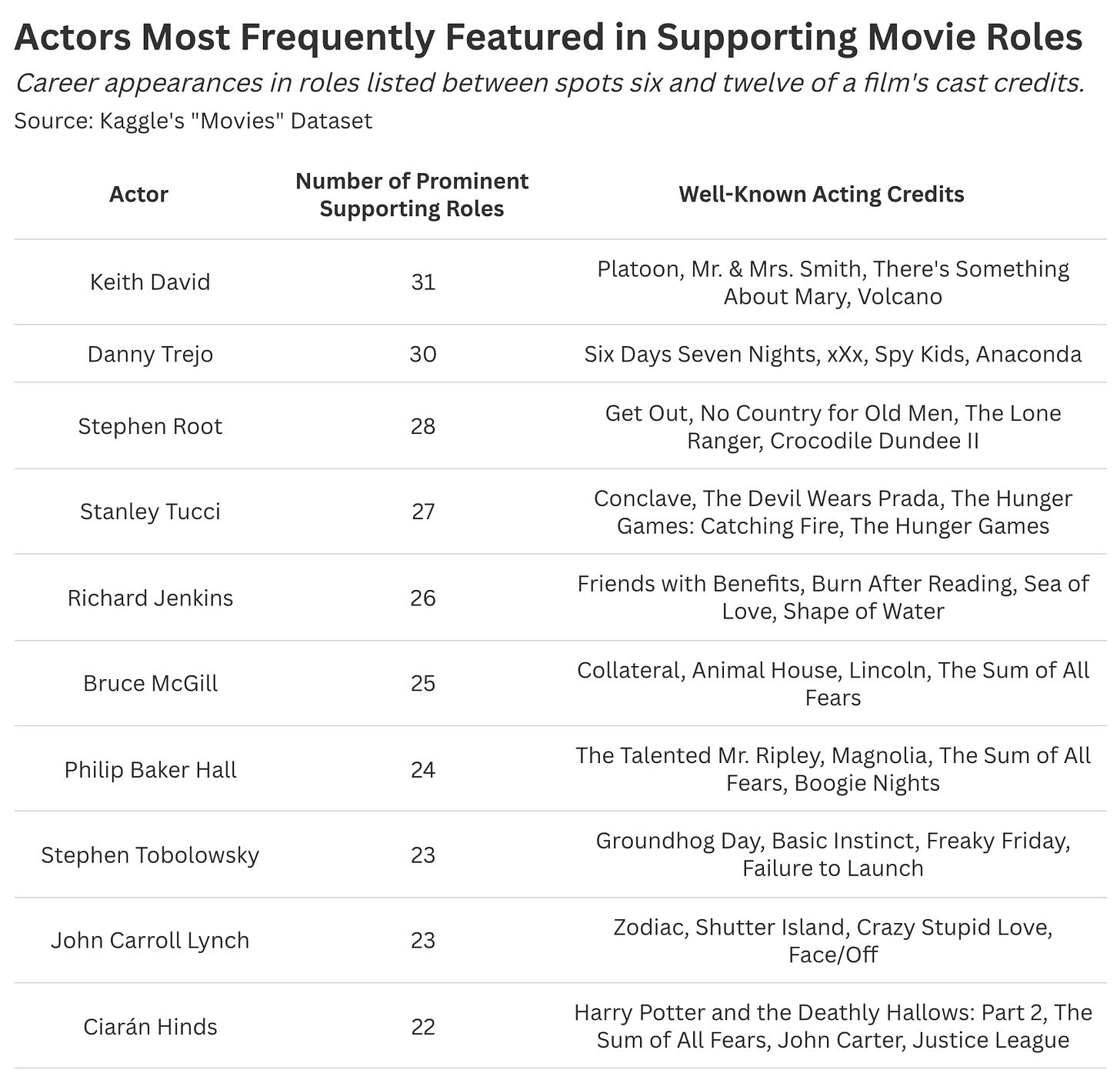
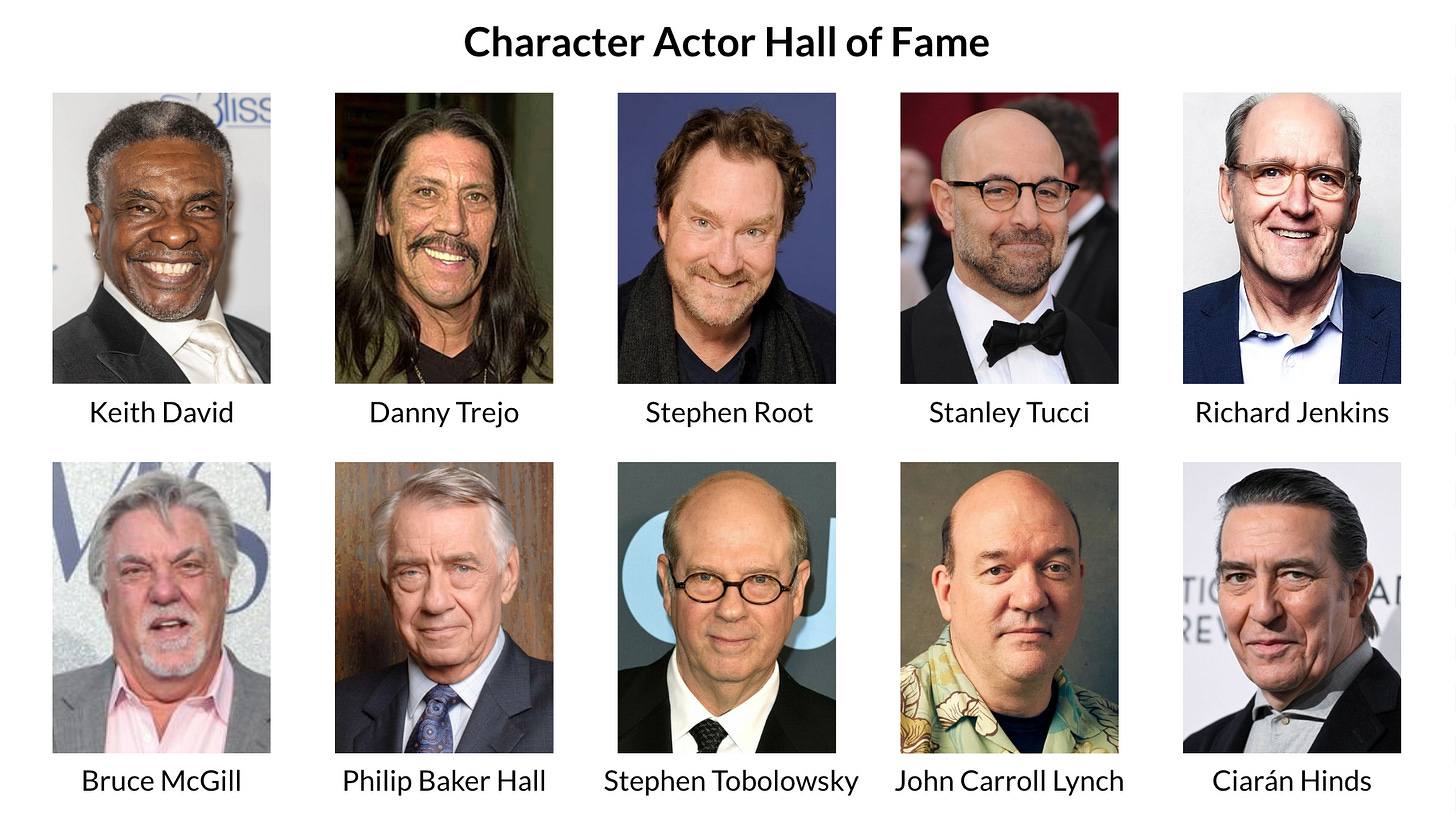
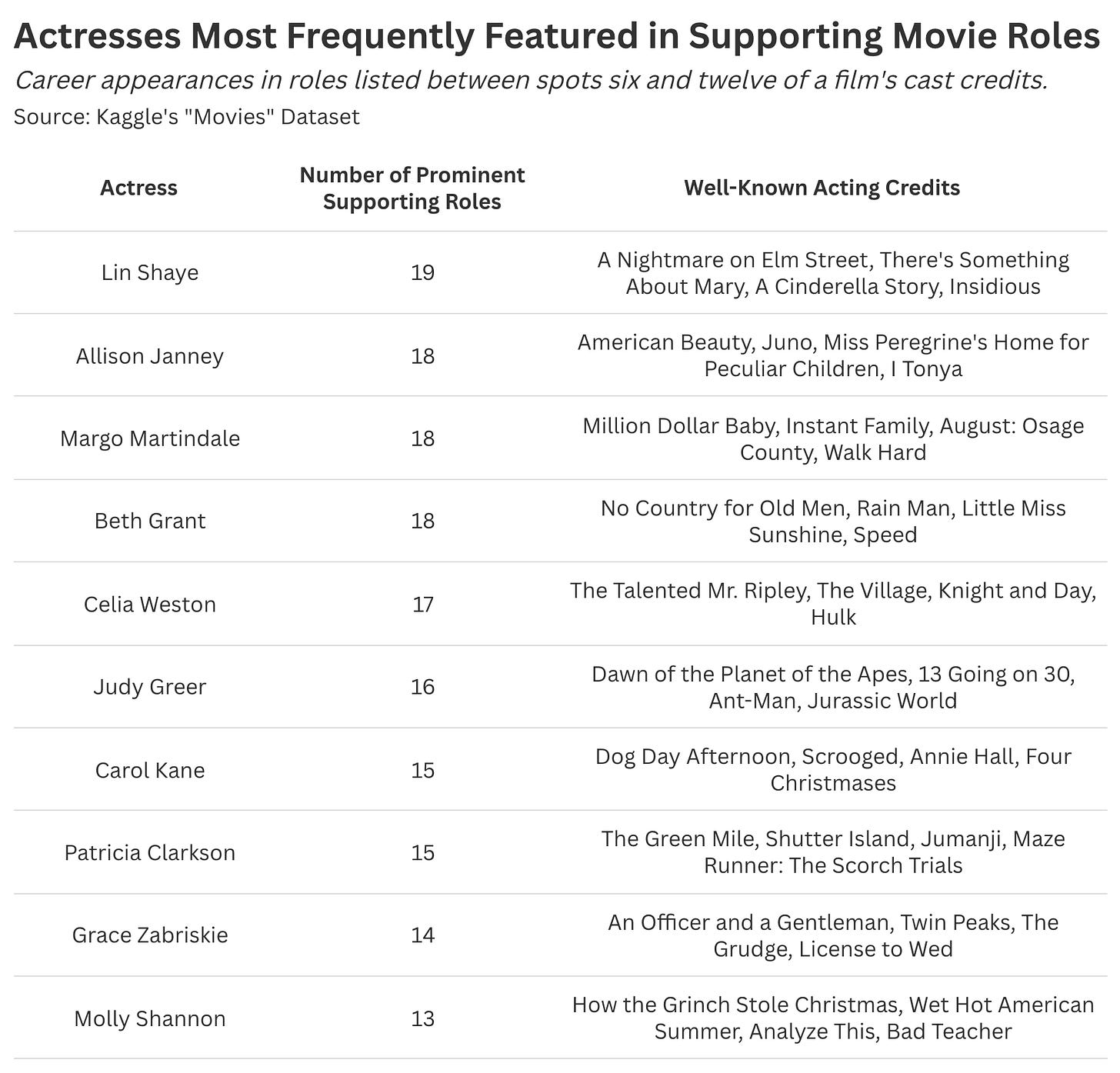
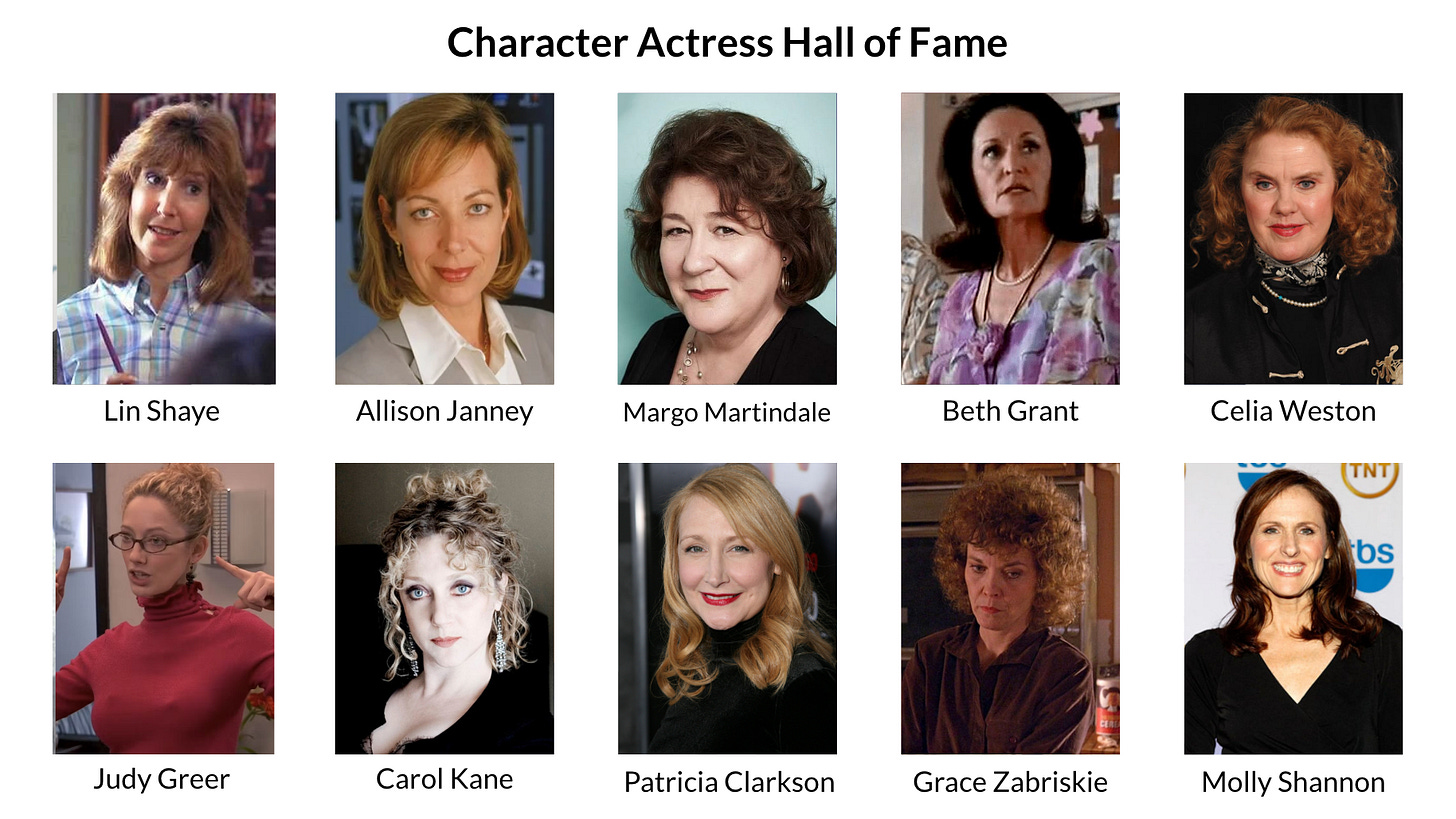
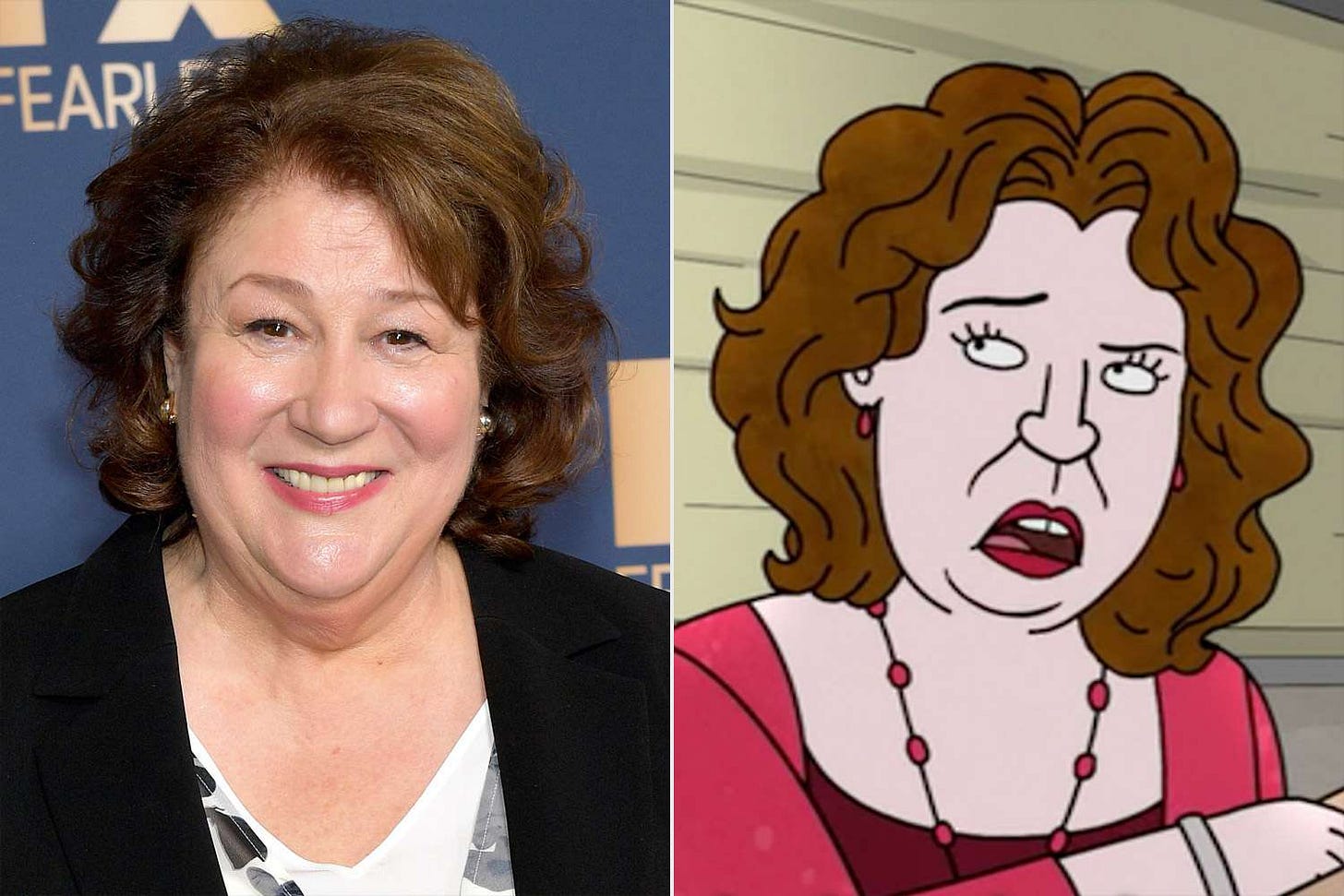
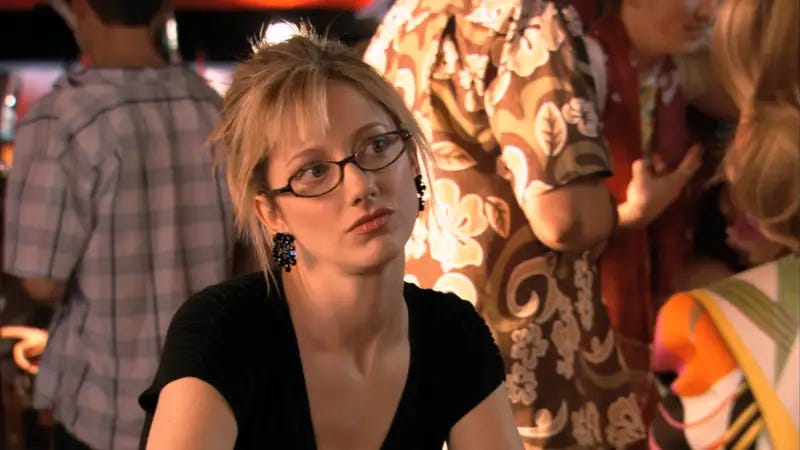
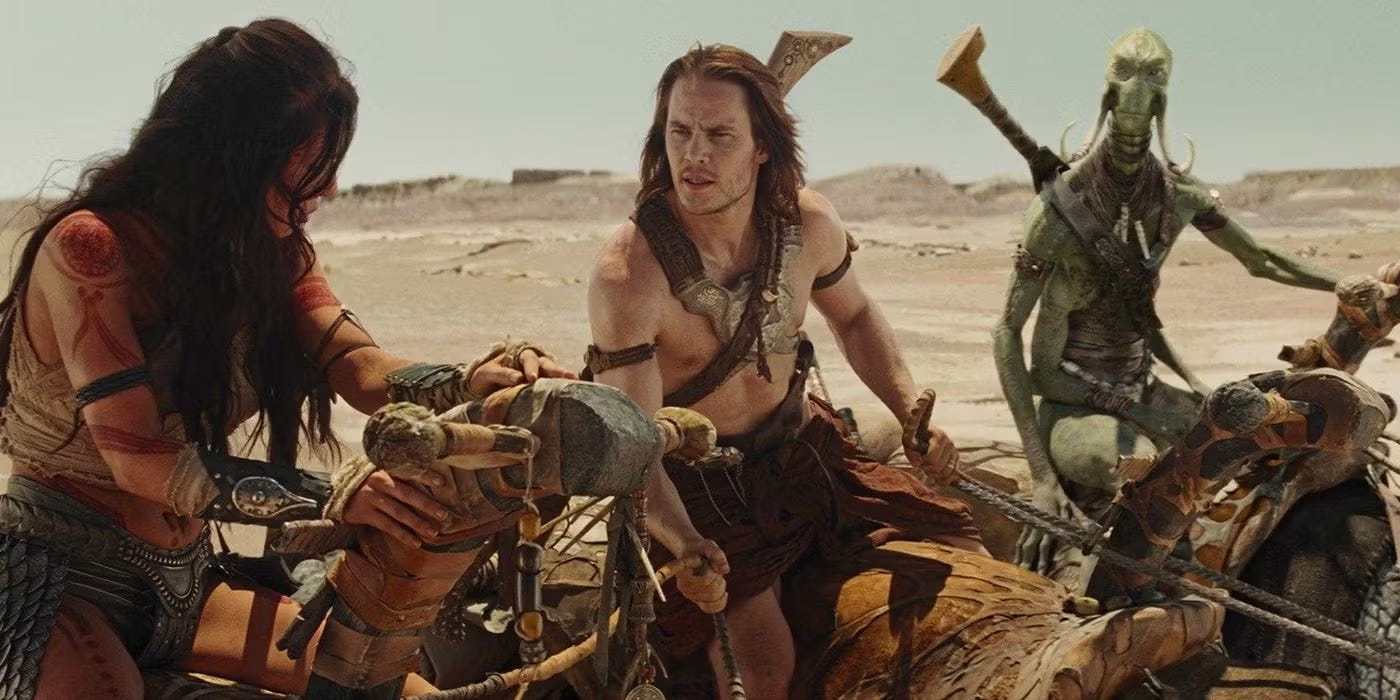
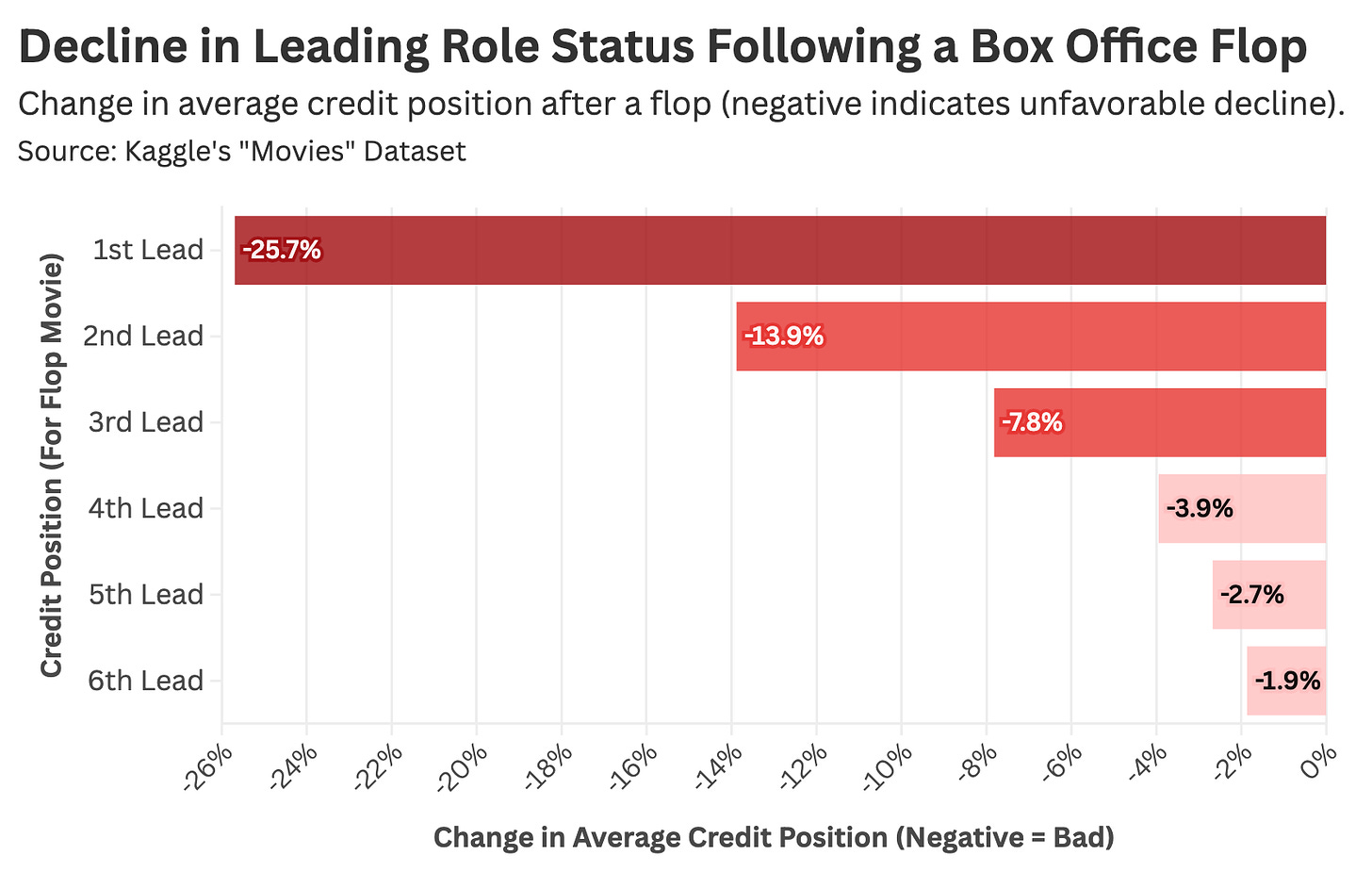
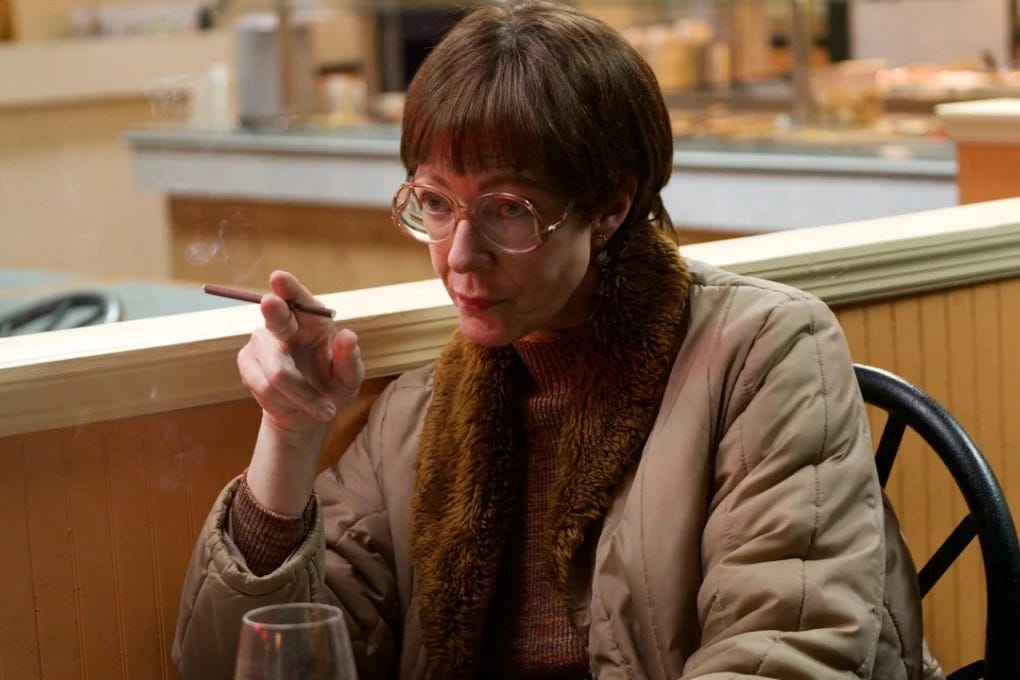
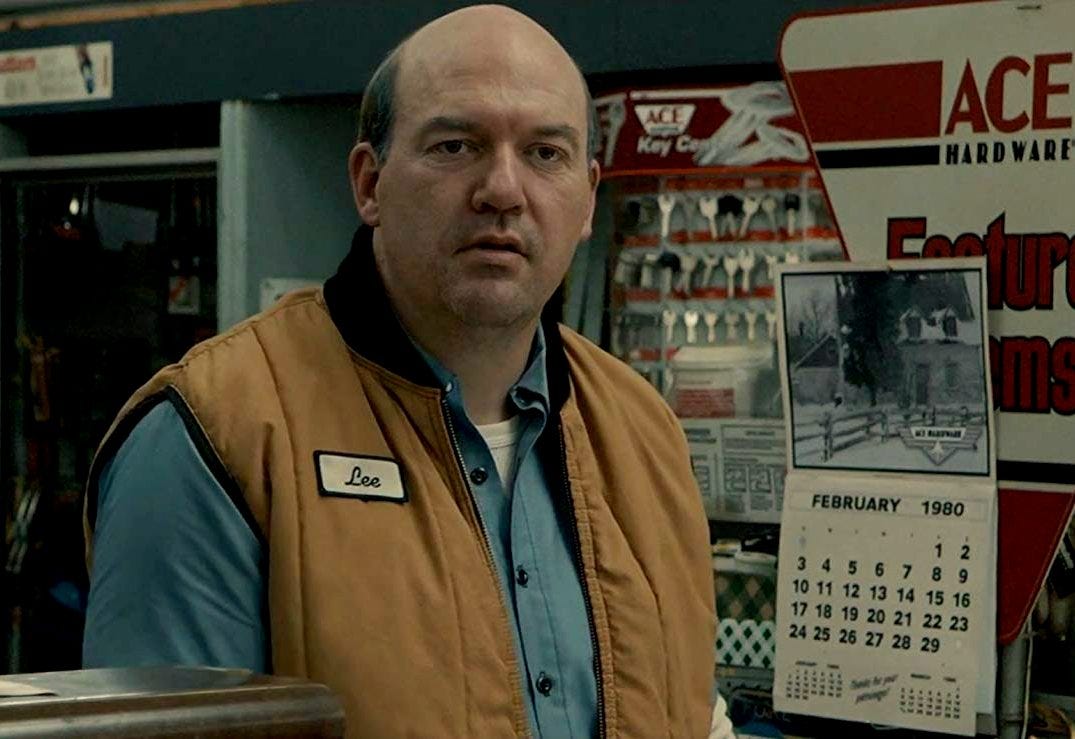

A very GenX-Z list. Just a little earlier and it would have to include the Harry Dean Stantons, John C Reillys and even dare I say it Philip Seymour Hoffmans
If character actress Margo Martindale wasn’t on here I was going to write angry letter